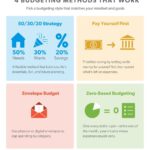Select A Safe Financial Advisor
Who is a Financial Advisor?

A financial advisor is a trained professional who assists individuals in managing their finances, offering expert advice on investments, retirement planning, wealth management, and tax strategies. Their main goal is to help clients achieve financial security and meet both short- and long-term financial objectives.
Introduction to Financial Advisors

In today’s complex financial landscape, a financial advisor is more than just an investment manager; they serve as a critical partner in navigating life’s financial challenges. As personal and corporate finances become more intricate, financial advisors provide personalized guidance tailored to an individual’s unique goals, risk tolerance, and time horizon. Whether you are saving for a home, retirement, or simply looking to manage your wealth, a skilled financial advisor can provide clarity and direction in your financial journey.
Types of Financial Advisors

Financial advisors come in various specializations. Understanding these distinctions helps in choosing the one best suited for your needs:
- Certified Financial Planners (CFP): CFPs provide a holistic approach to financial planning, addressing all aspects from budgeting and investing to retirement and tax planning.
- Investment Advisors: Focus solely on managing investments, tailoring portfolios to meet clients’ risk tolerance and financial goals.
- Wealth Managers: For high-net-worth individuals, wealth managers offer comprehensive services including estate planning, philanthropy, and intergenerational wealth transfer.
- Robo-Advisors: These digital platforms provide automated, algorithm-based investment management, making them a cost-effective option for tech-savvy investors with straightforward portfolios.
The Role of a Financial Advisor
Financial advisors are instrumental in more than just investments. Here’s an in-depth look at their key roles:
- Comprehensive Financial Planning: This includes goal-setting, cash flow management, debt reduction, and savings strategies.
- Investment Management: Advisors evaluate your risk tolerance, diversify your portfolio, and monitor the market to optimize returns.
- Tax Planning: Advisors help reduce tax liabilities through tax-efficient investments and strategies, such as timing asset sales or contributing to tax-advantaged accounts.
- Retirement Planning: They ensure that retirement savings align with your long-term goals and lifestyle needs, factoring in life expectancy, healthcare costs, and inflation.
- Estate Planning: Financial advisors help structure your estate to ensure a smooth transfer of wealth, minimizing taxes and legal complications for your heirs.
How to Choose a Safe Financial Advisor
Selecting the right financial advisor requires careful consideration. Follow these steps to ensure you’re making a safe and informed choice:
- Check Credentials:
- Look for recognized certifications like CFP (Certified Financial Planner) or CFA (Chartered Financial Analyst). These designations signal expertise and adherence to ethical standards.
- Verify the advisor’s registration with regulatory bodies like the SEC (U.S.) or FCA (U.K.).
- Understand Fee Structures:
- Fee-only: Advisors charge a flat fee, hourly rate, or percentage of assets under management. They don’t earn commissions, which reduces conflicts of interest.
- Commission-based: Advisors earn commissions from selling financial products like insurance or mutual funds. Be cautious, as their recommendations may be biased.
- Fee-based: Combines both fees and commissions. Transparency is crucial here; ask how they are compensated to ensure their advice aligns with your best interests.
- Evaluate Experience:
- Ask for examples of clients with similar financial situations to yours. This gives you insight into their expertise.
- Look into online reviews or ask for referrals. Reputation matters, and a strong track record can be reassuring.
- Assess Compatibility:
- Communication style matters. A good financial advisor will explain complex topics in a way you can understand.
- Ensure their philosophy aligns with your goals, whether it’s growth-focused investment or risk-averse strategies.
Benefits of Working with a Financial Advisor
The benefits of hiring a financial advisor extend beyond investment guidance:
- Personalized Financial Strategies: Unlike generic advice, a good advisor tailors financial plans to your specific goals, risk tolerance, and life stage.
- Behavioral Coaching: Emotional decisions, such as panic selling during market downturns, can be detrimental. Advisors help keep you on track with a long-term perspective.
- Time and Stress Savings: Managing finances can be overwhelming. An advisor helps streamline the process, from portfolio management to tax filing, saving you time and reducing stress.
- Ongoing Monitoring and Adjustments: Markets fluctuate, and life circumstances change. A financial advisor ensures that your financial plan adapts accordingly, keeping you on course.
Fee Structures Explained
When evaluating fee structures, transparency is essential:
- Fee-Only Advisors: Charge for their advice and management, typically as a flat fee or percentage of assets managed (usually between 1%-2%). Since they don’t earn commissions, there’s less chance of conflicts of interest.
- Commission-Based Advisors: These advisors may recommend products from which they earn a commission, such as mutual funds or insurance policies. This setup can lead to conflicts, so be cautious and ask for full disclosure.
- Fee-Based Advisors: This hybrid model charges fees for advisory services but may also receive commissions from products. Always ask for an explicit breakdown of how they’re paid to understand their incentives.
Common Misconceptions About Financial Advisors
Many people hesitate to hire financial advisors due to myths. Here are some common misconceptions:
- “Advisors are only for the wealthy.” Many advisors work with clients across income levels. There are affordable options like robo-advisors or fee-only planners with sliding scales.
- “Financial advisors are expensive.” While some high-net-worth-focused advisors do charge more, there are many cost-effective alternatives, such as flat-fee or hourly advisors.
- “I can manage on my own.” DIY financial management is possible, but many miss out on the nuanced expertise and time savings that a professional can provide.
The Future of Financial Advisory Services
The financial advisory industry is rapidly evolving. Here are some trends to watch:
- Technology-Driven Hybrid Models: Robo-advisors are on the rise, offering low-cost investment management. However, human advisors remain essential for complex financial planning. Expect a blend of algorithm-based investing and personalized human advice to become the norm.
- Ethical Investing: More clients are prioritizing socially responsible investing (SRI) or Environmental, Social, and Governance (ESG) criteria, seeking advisors who align with these values.
- Increased Regulation and Transparency: Governments are tightening regulations to ensure advisors act in clients’ best interests, particularly in fee disclosure and fiduciary duties.
Conclusion
In 2024, the role of financial advisors has never been more critical. With the complexity of modern financial markets, it’s essential to have expert guidance to help manage investments, plan for retirement, and achieve personal financial goals. By understanding how to select a financial advisor that aligns with your needs—whether through fee structure, credentials, or investment philosophy—you can take control of your financial future. For more tips on managing finances, you can also explore strategies on how to save money on a low income. Additionally, it’s crucial to stay informed on financial regulations and trends through reliable sources such as The Financial Industry Regulatory Authority (FINRA).
Investing in the right advisor now can lead to long-term security and peace of mind.
Key Takeaways:
- Always check credentials and fee structures to avoid conflicts of interest.
- Tailor your advisor selection to your specific financial needs—whether you’re planning for retirement, managing wealth, or seeking investment advice.
- The future is moving toward hybrid models combining human expertise and technology.
Frequently Asked Questions
1. Why is it important to select a safe financial advisor?
Selecting a safe financial advisor is crucial to ensure your money is being managed by a trustworthy, qualified professional. A safe advisor will help you achieve your financial goals while minimizing risks, providing sound advice, and avoiding conflicts of interest.
2. What qualifications should I look for to select a safe financial advisor?
When looking to select a safe financial advisor, check for credentials such as Certified Financial Planner (CFP) or Chartered Financial Analyst (CFA). These qualifications indicate that the advisor has undergone rigorous training and adheres to a strict code of ethics.
3. How do I verify the legitimacy of a financial advisor before selecting them?
To select a safe financial advisor, you should verify their registration with regulatory bodies like the SEC or FINRA. You can also check their disciplinary history through resources such as BrokerCheck or the advisor’s own disclosure forms.
4. How does fee structure impact the decision to select a safe financial advisor?
When you select a safe financial advisor, it’s essential to understand their fee structure. Opt for fee-only advisors who charge a transparent rate, as this reduces the likelihood of biased advice driven by commissions.
5. What are the red flags to watch out for when trying to select a safe financial advisor?
To select a safe financial advisor, be wary of advisors who lack proper credentials, push high-commission products, or provide vague details about their compensation. Transparency and a proven track record are key factors to ensure safety.
6. How can I ensure that I select a safe financial advisor who aligns with my goals?
To select a safe financial advisor, have a detailed discussion about your financial goals and ask how they plan to tailor their strategies to meet your specific needs. A good advisor will provide personalized advice rather than generic recommendations.
7. Is it necessary to interview multiple candidates to select a safe financial advisor?
Yes, it’s recommended to interview multiple candidates to select a safe financial advisor. This allows you to compare their credentials, experience, and fee structures, ensuring you make an informed decision based on a full understanding of your options.
8. What role does experience play in selecting a safe financial advisor?
Experience is crucial when you select a safe financial advisor. An advisor with a proven track record, especially with clients similar to you, is more likely to provide reliable and effective financial strategies.
9. Should I trust online reviews when trying to select a safe financial advisor?
Online reviews can provide useful insights, but to select a safe financial advisor, you should also seek referrals from trusted sources and verify the advisor’s credentials independently. Reviews should supplement, not replace, your research.
10. How do ethical considerations factor into selecting a safe financial advisor?
When you select a safe financial advisor, consider their stance on ethical issues, such as transparency and socially responsible investing (SRI). A safe advisor will respect your values and ensure that your investments align with both your financial and ethical goals.








1 thought on “How To Select A Safe Financial Advisor 2024”